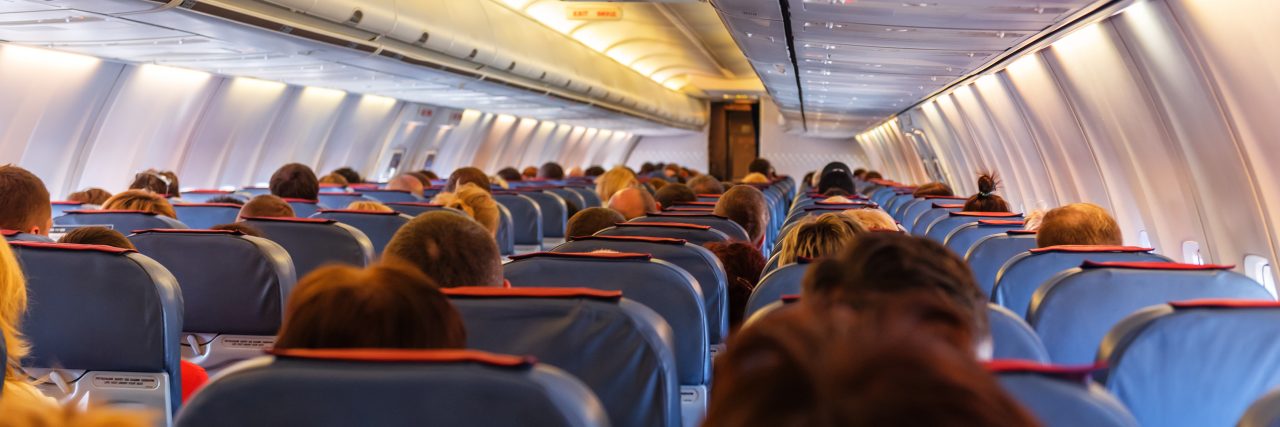There has been a lot of discussion lately about allergies and food allergy; everything from incredulity to condemnation. It is a bit surreal for me still to think about what was once my “rare condition” being the fodder for TV news and social media outbursts. For about half of my life, I only knew one other person who had anaphylactic food allergies besides me — my cousin. There were no allergy menus, no Epi-pens or Albuterol inhalers when I was growing up with anaphylaxis. There was Benadryl, and the hospitals had adrenaline. That was it. Even doctors in the emergency room would often be stunned by how severe my reactions were. My mother would have to tell them how to treat me. Most people who were told about my allergies refused to believe it.
A psychologist once told me that many non-allergic people reflexively deny the existence of anaphylaxis, because the human brain does not deal well with the constant threat of impending doom. They do not want to think that anyone at any time could eat something and stop breathing. I envy these people the luxury of their denial. I have never in my memory been able to eat whatever I wanted to. Eating has always been restricted and accompanied by the threat of anaphylaxis. I cannot afford to deny its existence as I pass out from lack of oxygen, not knowing if I will ever wake up again. Denial is just not an option for me.
Fast forward to 2018, and food allergy is on the rise — a steep rise. No one is quite certain why. Some treatments have had limited success for some patients — mainly young children with a single allergy — but there is no cure for food allergy.
About two months ago, I was sitting on an airplane, preparing to take off on a very short connecting flight. I had done my usual pre-flight wipe down, and was in the process of placing my face mask, inhaler, and a box of Epi-pens in the seat pocket in front of me for easy access, when a young woman asked if she could sit in the middle seat next to me. She looked at me and said, “Oh great. I guess we won’t get nuts this flight.”
“You can eat your own if you brought them, just please tell me first, so I can go hide in the bathroom,” I said with a smile. She rolled her eyes. I offered her some alternative snacks, which she declined (allergic people often carry safe snacks to bribe other passengers with).
Shortly after take-off, nut-less snacks were served, and the young woman next to me quickly ate hers. About a minute later, she began coughing and choking. The woman in the window seat gave her a bottle of water, but her eyes and lips began to swell also. “I don’t know what is wrong with me,” she said, “my tongue feels fat.” I looked her in the eyes and calmly asked, “Does your throat feel swollen?” She looked horrified. “Open your mouth, sweetie,” I said. Having had hundreds of anaphylactic reactions myself, there was no mistaking what was happening to her.
I kept my face neutral and calm as the passenger on the other side shot me a shocked look. This poor disbelieving girl was having her first food allergy reaction. “It looks like you might be allergic to something you ate,” I said. I pushed the call button, got out some liquid Benadryl, and had her begin sipping it. “No!” she said, “I don’t have allergies. I am not one of those people. Why can’t I talk right?” Terror filled her eyes. We tried unsuccessfully to wave down a flight attendant, as the plane picked that moment to encounter turbulence and no one was responding to our requests for help.
Luckily, over the counter medications were enough to stop her reaction. The woman on the other side of her was a Mylan sales representative, the makers of Epi-pens. “You are so lucky you sat in this seat, next to someone who knew how to help you and had the right medicine,” she told her. I urged her to see a doctor, and reported the incident to the airline staff as I exited the plane. Why didn’t I give her an Epi-pen? It is illegal to administer your Epi-pen to another person, and you can be held criminally liable for doing so. It is, needless to say, a horrible ethical dilemma.
Disbelief of food allergy does not protect you from it. Not wanting to have it does not keep you safely eating nuts, or milk, or fish. Not having a history or knowing anyone with a food allergy does not mean that might not end up like this poor girl, scared and shocked as her body betrayed her thousands of feet in the air. Ignorance is not a safeguard from anaphylaxis. It just makes it all the more painful when you or someone you love has their first reaction, and you feel guilt and remorse for your callous behavior. Human kindness always goes a long way, and common courtesy can do wonders. Everyone could benefit from those two qualities, including allergic people.
Getty image by Vovashevchuk.

